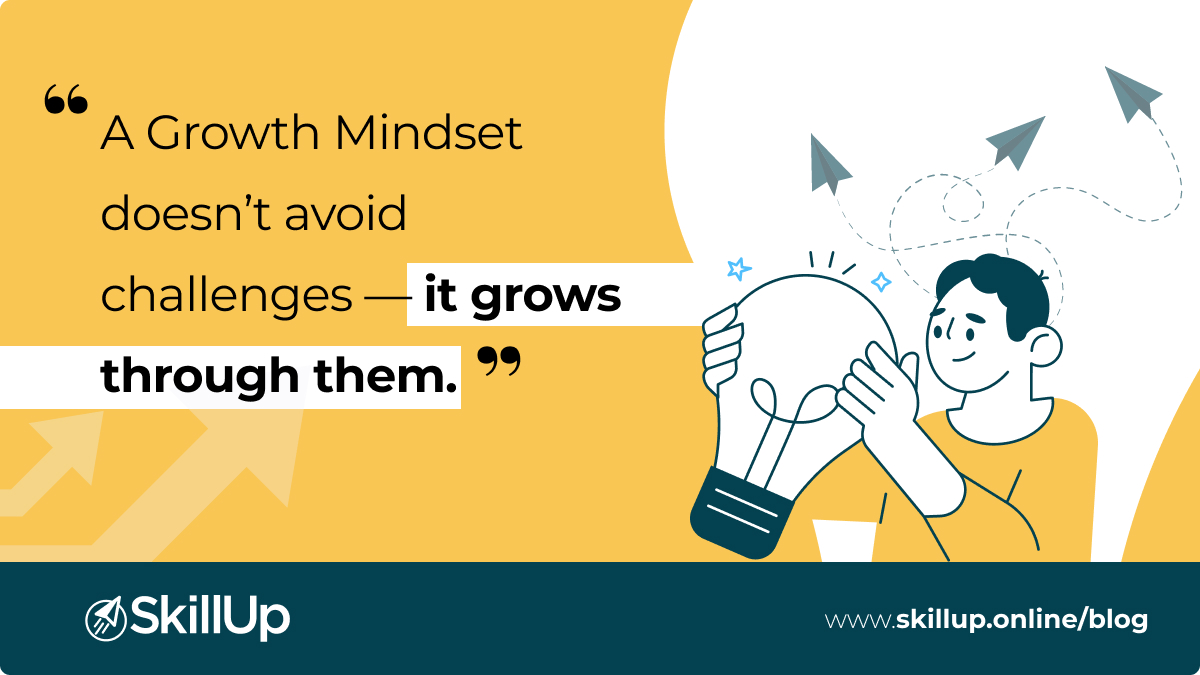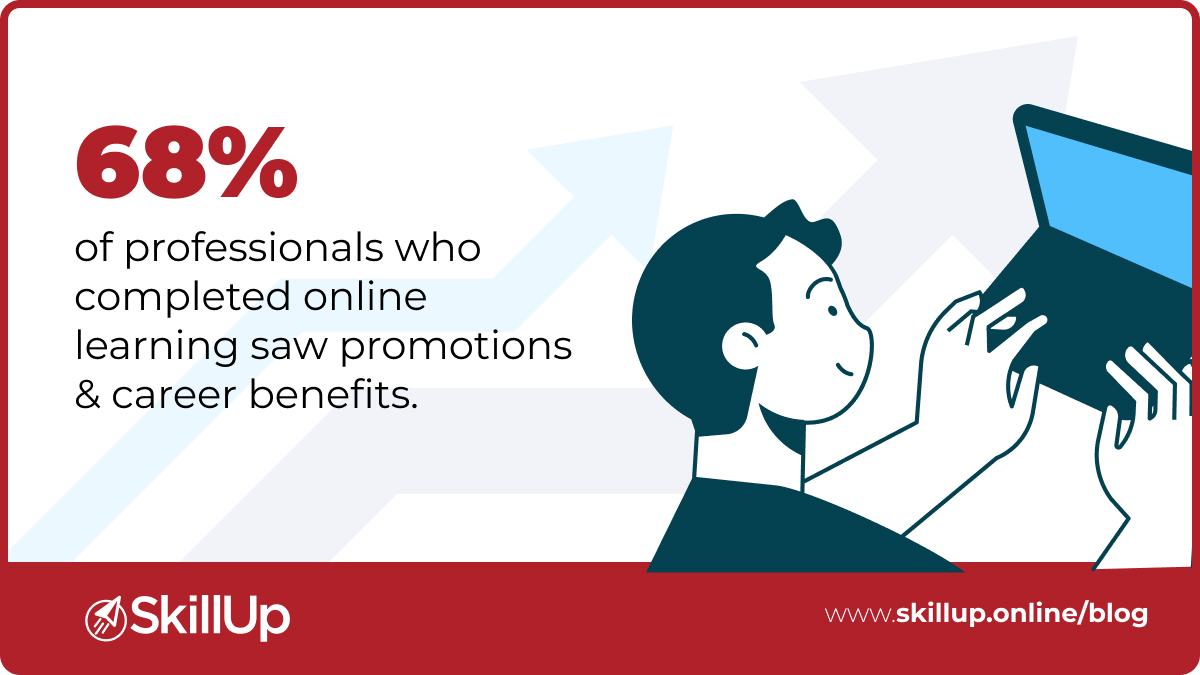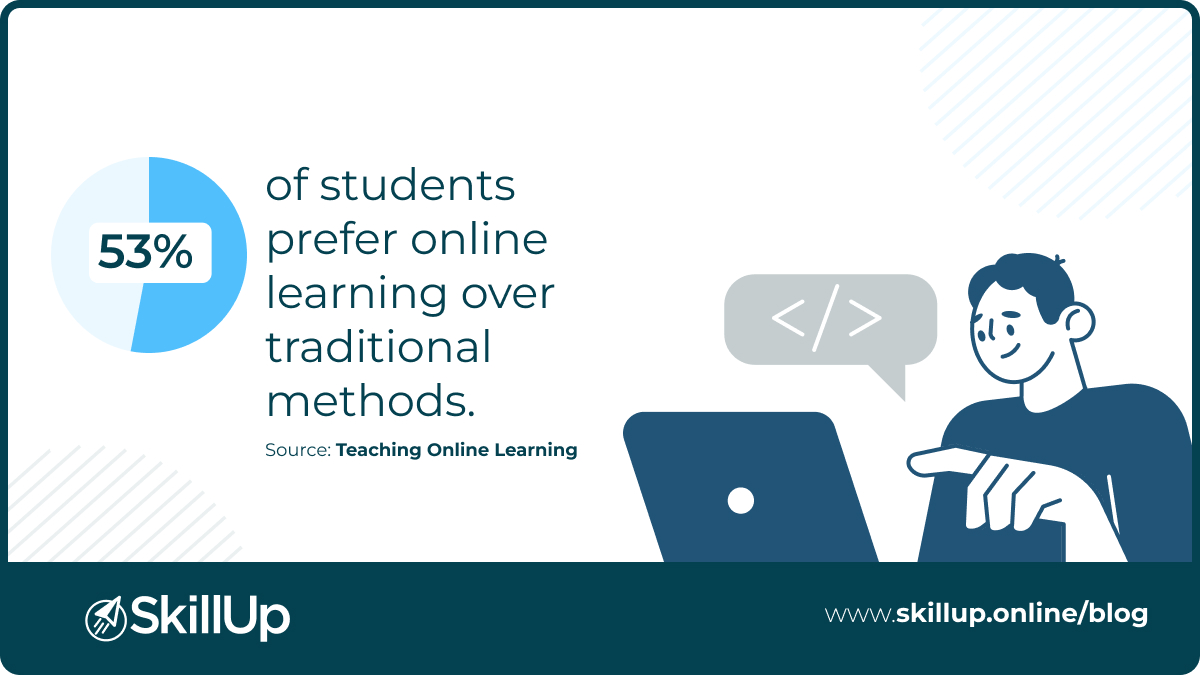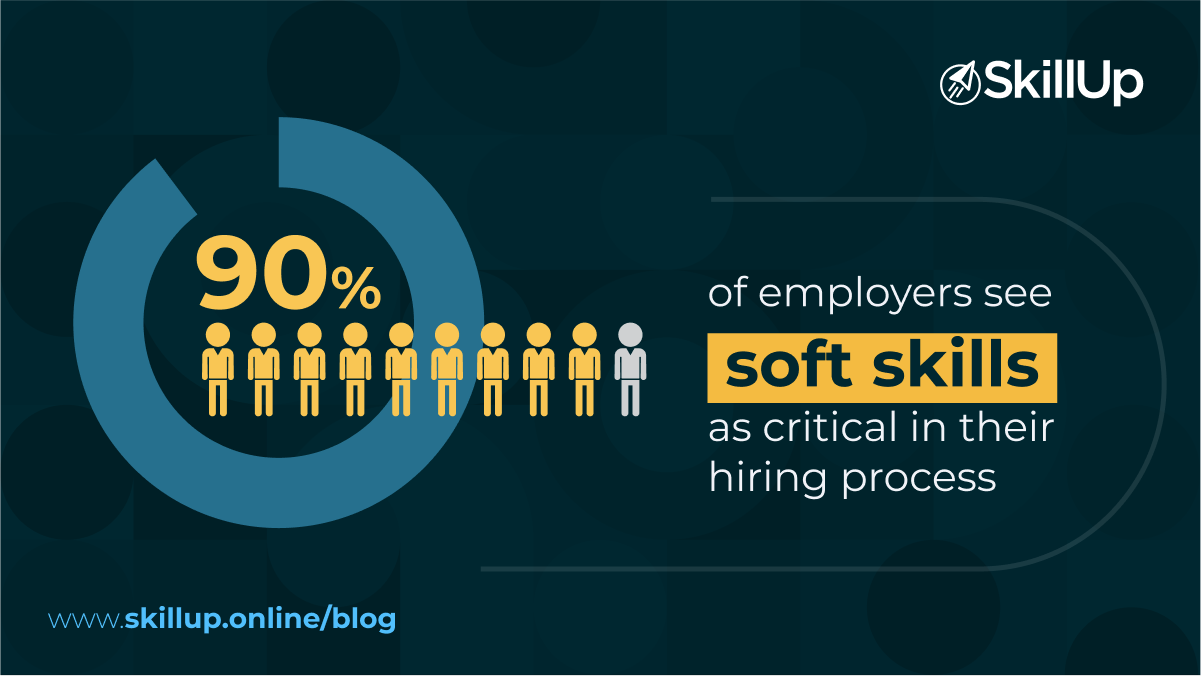When we leave school and enter the workforce, we move from an environment where learning is encouraged to an environment where it’s not. Suddenly, we’re thrust into the wild world of adult life, where it’s no longer about acquiring  skills, but about applying the skills you already have. And for much of the twentieth century, this was a reasonably correct assumption.
skills, but about applying the skills you already have. And for much of the twentieth century, this was a reasonably correct assumption.
But the world is different today. It’s moving too fast to just graduate school and never explicitly learn new skills or sharpen existing skills anymore. Reskilling and upskilling are crucial if you want a successful career in the twenty-first century. This article will cover the following three topics:
- Why should you keep learning?
- What is the difference between reskilling and upskilling?
- What should you learn next?
Why Should You Keep Learning?
First, learning keeps you relevant in today’s fast-changing world. We all know people who stopped learning decades ago and seem stuck in the past as a result. While you might get by at a job that doesn’t require you to learn new skills or deepen your existing skills, if you want to build a career that only grows stronger by the decade, you need to stay relevant. That means continual, explicit learning.
Second, learning makes you more flexible. It opens doors you couldn’t have dreamed of before. You become a more valuable employee for both the company you’re already working for and the companies that want to hire you. Because you’ll have more options to choose from internally and externally, learning is your insurance against a sudden turn of events.
Third, learning keeps you healthy. Learning has the capacity to physically change your brain for the better, even in adult brains. In addition, well-educated people tend to have higher salaries and lead longer, healthier lives.
What Is the Difference Between Reskilling and Upskilling?
Reskilling and upskilling are sometimes used as synonyms, but they’re distinctly different terms. Reskilling means learning entirely new skills. It’s a plumber who becomes a data scientist, an accountant who becomes a blockchain developer, a nurse who becomes a web designer. If you want to switch careers, you need to reskill yourself.
Upskilling means explicitly sharpening your existing skills. It’s taking an Excel course as a financial analyst, learning Python as a data scientist, or learning more about Photoshop as a graphic designer. If you want to get better at what you’re currently doing and become an expert in your field, you need to upskill yourself.
Throughout your career, you’ll need both types of learning. When the World Economic Forum conducted a survey for its most recent Future of Jobs report, 94% of business leaders said they expect employees to pick up skills on the job (up from 65% in 2018). They also believed that 40% of the core skills required to perform a job properly will change over the next five years and that 50% of all their employees will need reskilling.
What Should You Learn Next?

It’s one thing to understand the importance of learning, but another thing to know what to learn next. There are so many things to learn that it’s easy to get stuck. One of the key findings of the WEF’s Future of Jobs report was that skills such as critical thinking, problem-solving, self-management, resilience, and flexibility are great skills to learn. They are all soft skills that companies find increasingly valuable.
This comes in addition to the hard technology skills that take up a growing share of all new jobs. Think cybersecurity, artificial intelligence, blockchain, big data, and the Internet of Things. Companies struggle to find people with the right skills in those areas, to the point where it’s becoming a pressing problem.
That’s where you can step in. Companies will line up to hire you if you commit to life-long learning and become an expert in any of the above-mentioned technologies. If you then continue learning on the job, you set yourself up for a successful and interesting career. The internet has democratized learning. With enough perseverance and willpower, nothing is out of your reach.





